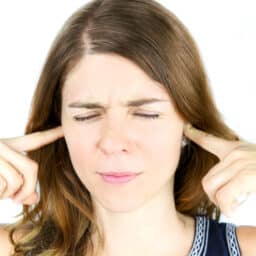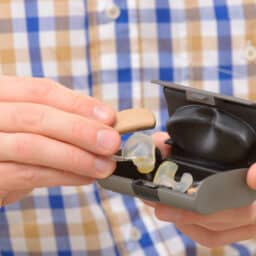Speech & Hearing Associates Is a Walk for a Lifetime Sponsor

Speech & Hearing Associates is thrilled to be a sponsor of Walk for a Lifetime, supporting Spectrum360 and their mission to provide specialized programs and support to individuals with autism and related challenges as they realize their aspirations, lead thriving lives and fully engage with their families and in their communities. Join us from 9…
What Features Do Modern Hearing Aids Offer?

Getting new hearing aids is like getting a new phone or computer in many ways. During the decision process, you’ll look at the different features each device offers, how they look and how they’ll work for your needs. For example, someone running advanced software may go for a bulkier, feature-heavy laptop, while someone who uses…
What to Know About Objective Tinnitus

Tinnitus is the perception of ringing, buzzing or other sounds in the ears when no sound is present. However, in some rare instances, a person’s tinnitus can be heard by a hearing specialist during an examination. This is known as objective tinnitus and is a less common form of tinnitus. What is Objective Tinnitus? Unlike…
How Does Hearing Loss Relate To Stress and Anxiety

Hearing loss can have profound effects on mental health, with studies showing that it can increase the risk of conditions like depression and anxiety. A systematic review of multiple studies found a significant association between hearing loss and anxiety disorders. According to research, individuals with hearing loss are more likely to experience anxiety symptoms. This…
Recognizing and Managing Common Ear Issues to Protect Your Hearing

When you think of hearing loss causes, aging and noise exposure are probably the first to mind. While these are some of the most common causes, there are also several ear conditions that can temporarily or permanently interrupt your hearing. Let’s take a look at a few of these conditions, how they’re managed and how…
Celebrate Valentine’s Day With the Help of Hearing Aids

When you think of top relationship advice, getting hearing aids probably isn’t the first thing to come to mind. While they might not seem like the most romantic topic, these tiny devices speak to a well-known relationship adage: communication is the foundation of a healthy relationship. In celebration of Valentine’s Day, take a look at…
When Should You See an Audiologist? Four Signs to Watch For

Your hearing plays a vital role in connecting you to the world around you. Yet, many people neglect their hearing health until it becomes a serious concern. An audiologist—a healthcare professional specializing in hearing and balance disorders—can help you protect and improve your auditory well-being. Let’s take a look at what an audiology appointment entails…
How Can Hearing Aids Help Manage Chronic Tinnitus?

Approximately 28.8 million U.S. adults could benefit from hearing aids. These tiny devices are widely known for amplifying speech to help those with hearing loss, but an often overlooked benefit is their ability to manage tinnitus. What Is Tinnitus? Tinnitus is the perception of sound in the ears when no external sound is present. It’s…
How To Protect Your Hearing This New Year’s Eve

It’s almost time to celebrate the new year! New Year’s celebrations tend to include a lot of loud music, fun times with your friends and, often, some fireworks. As you find the right outfit and settle on your New Year’s plans, take some time to look at our list of ways to protect your ears…
Can I Sleep, Shower And Exercise While Wearing Hearing Aids?

An estimated 28.8 million U.S. adults could benefit from the clear communication hearing aids have to offer. One of the most common questions new hearing aid wearers have is when to wear them and when to take them off. Let’s dive into three key scenarios people often ask about: sleeping, showering and exercising. Sleeping It’s…